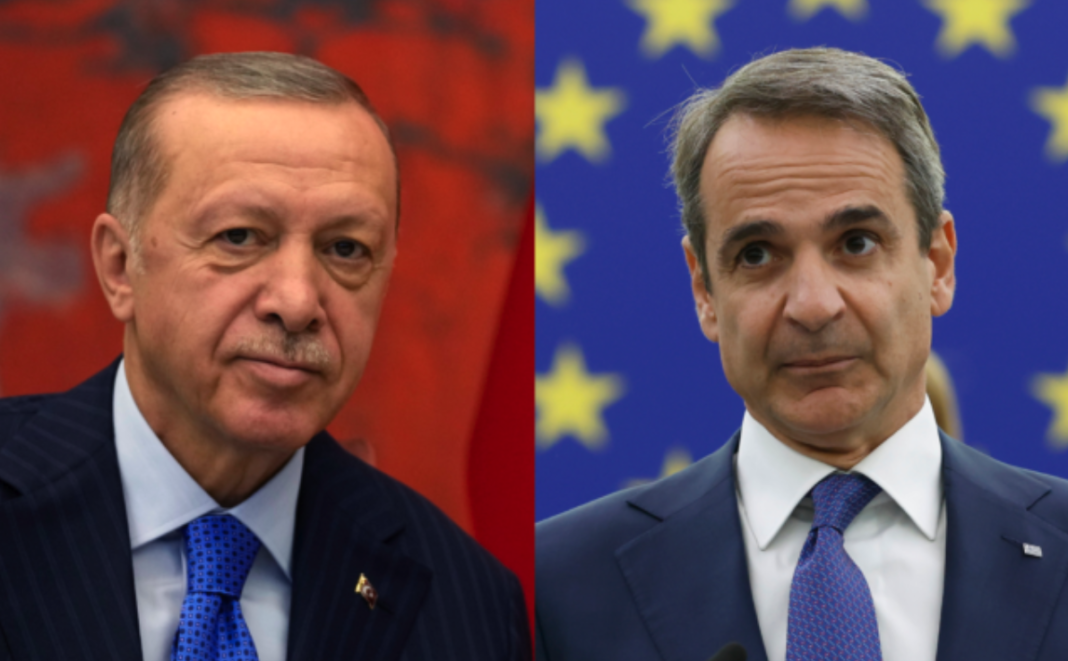What happened? Diplomatic initiatives, joint parliamentary committees, high level talks with concrete results, the resolution of long-standing bilateral issues or civil society pressure to improve relations? Nothing of the like. The reason for the sudden improvement of bilateral relations were the devastating earthquakes of 6 February in southern Turkey. By Ekrem Eddy Güzeldere in Hellenistic Foundation for European and Foreign Policy on April 1, 2023.
Only a few months ago, Greek-Turkish relations were at least tense. There was the fear that anti-Greek rhetoric would be an important ingredient for president Erdogan and the AKP/MHP alliance in the election campaign for the 14 May elections to consolidate their nationalist voter base. Large parts of the opposition, including the biggest opposition party CHP, would join the anti-Greece choir, trying to even surpass the government. There was even talk about potential military clashes in the Aegean or in the waters around Cyprus. President Erdogan repeatedly said that “Turkey might come one night unexpectedly.”
The same Erdogan on 25 March wrote a message to commemorate the Greek National Day: « I am convinced that the relationship and cooperation between our countries will further develop with our joint efforts.” His foreign minister Cavusoglu on the same day added: « I am confident that the good neighborly ties between our two countries will prevail in the period ahead.” He also spoke of a “positive trend” concluding his message to his Greek counterpart Dendias: « Please accept, Excellency, my best wishes for your personal health and happiness as well as for the well-being and prosperity of the friendly people of Greece. »
What happened? Diplomatic initiatives, joint parliamentary committees, high level talks with concrete results, the resolution of long-standing bilateral issues or civil society pressure to improve relations? Nothing of the like. The reason for the sudden improvement of bilateral relations were the devastating earthquakes of 6 February in southern Turkey, Greece’s reaction to it, helping with aid and rescue teams and early personal visits of leading politicians.
In the aftermath of the earthquakes and the train crash in Greece of 28 February, until now, previously unthinkable initiatives were undergone in bilateral relations. We already mentioned the friendly letters commemorating Greece’s independence from the Ottoman Empire. Additionally, the foreign ministers agreed to support Greece’s candidacy for the position of non-permanent member of the Security Council in 2025-26 and Turkey’s bid for the General Secretariat of the International Maritime Organisation. Further, Turkey decided to allow the extradition of the father of one of the victims of the deadly train accident, who was serving a sentence in a Turkish prison. And on 22 March a high-level diplomatic meeting took place in Ankara where different issues from energy, trade, societal relations and further cooperation were discussed at the fourth meeting of the “Positive Agenda” initiative.
What we are currently witnessing is a “Disaster Diplomacy reloaded”, similar to what happened in 1999 after earthquakes first in Turkey, then in Greece. We then saw olive-tree planting ministers, who danced Sirtaki together. But we also saw that good neighbourly relations built on the empathy for disaster victims is not sustainable and usually short-lived. When the news about the disasters are waning, so is the empathy for the other. This could happen again, because the common ground for real improvement of the relations didn’t get any better recently. What therefore is needed is a genuine new approach to the bilateral relations, requiring commitment from both sides to continue the dialogue also in tense times, engaging in solution oriented dialogue trying to settle the long standing bilateral issues from the Aegean, the minorities, the Halki Seminary to Cyprus. With elections taking place soon in both countries, this could be a task for the new governments.

